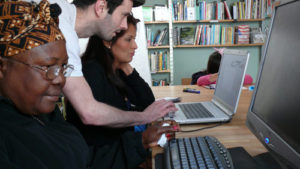Survey finds Australia’s skills system needs reform
 A new report by the Organisation for Economic Co-operation and Development (OECD) has outlined a series of measure to ensure Australia’s workforce is equipped with the skills it will need into the future.
A new report by the Organisation for Economic Co-operation and Development (OECD) has outlined a series of measure to ensure Australia’s workforce is equipped with the skills it will need into the future.
And it says Australia’s cohort of well-educated, highly skilled migrants is an asset that should by leverages.
The report says the overall performance of Australia in a survey of adult skills ranges from average to very good.
“However, three million adults, representing one-fifth of the working age population, have low literacy and/or numeracy skills,” the report says.
The report advocates increasing participation of women in STEM fields, addressing underperformance of post-secondary VET students and preventing drop-out, improving pre-apprenticeships, enhancing mathematics provision within secondary education and tackling poor access to childcare facilities for young mothers.
It says skills, including basic literacy and numeracy, critical to the prosperity and well-being of individuals, they are also key drivers of economic growth and societal advancement.
The report, titled ‘Building Skills for All in Australia: Policy Insights from the Survey of Adult
Skills, is part of the OECD’s international Survey of Adult Skills which aims to help countries secure better skills policies by measuring the basic skills of adults and demonstrating how these skills relate to economic and social outcomes.
The report says Australia’s performance may lead to the nation being left behind in terms of innovation and economic growth by countries that have been more successfully investing in the skills of their people.
“An estimated three million adult Australians are living with the consequences of low basic skills,” the report says.

AMES William Angliss Institute Workplace Skills Course Hospitality
“Skills contribute effectively to the strength of the economy. However, in the context of global upskilling and increasing competition for skills in global markets, it is important that Australia takes action,” it says.
“This should include strengthening focus on basic skills throughout initial schooling and in post-secondary programmes, and reaching out to disconnected youth,” the report says.
The report puts forward a set of eight key recommendations designed to strengthen Australia’s skill base.
The report found that numeracy represented a particular challenge in Australia and that signs of poor numeracy performance can be traced back to initial schooling.
It found women had weaker numeracy skills than men and there was a large gap between the most proficient and least proficient adults in literacy and in numeracy.
It also found many well-educated adults have low literacy and/or numeracy skills and that young women in Australia were much more likely to be not in employment, education or training than young men.
But the report found Australia does have a skills system that can be built on and many well educated and highly skilled migrants.
“Australia has a large population of well-skilled and well-educated migrants, many of whom are young. These skilled migrants bring highly attractive and much-needed skills,” it said.
Among the report’s recommendations were: Increasing participation of women in STEM fields by breaking down gender stereotypes and encouraging women to enter these fields and strengthen the focus on mathematics throughout secondary education; Identify students in post-secondary VET who are at risk of low basic skills; providing targeted initiatives to support them; and, ensuring that literacy and numeracy skills are part of the quality criteria in post-secondary VET.
It also recommended: encouraging post-secondary VET providers to address weak literacy and numeracy skills’ reaching out to disconnected youth and prevent dropout at earlier stages of education; using pre-apprenticeships to help those not in employment, education or training NEETs re-enter education and training, and to find employment.
The report also called for improved access to childcare facilities for young mothers.
Laurie Nowell
AMES Australia Senior Journalist












